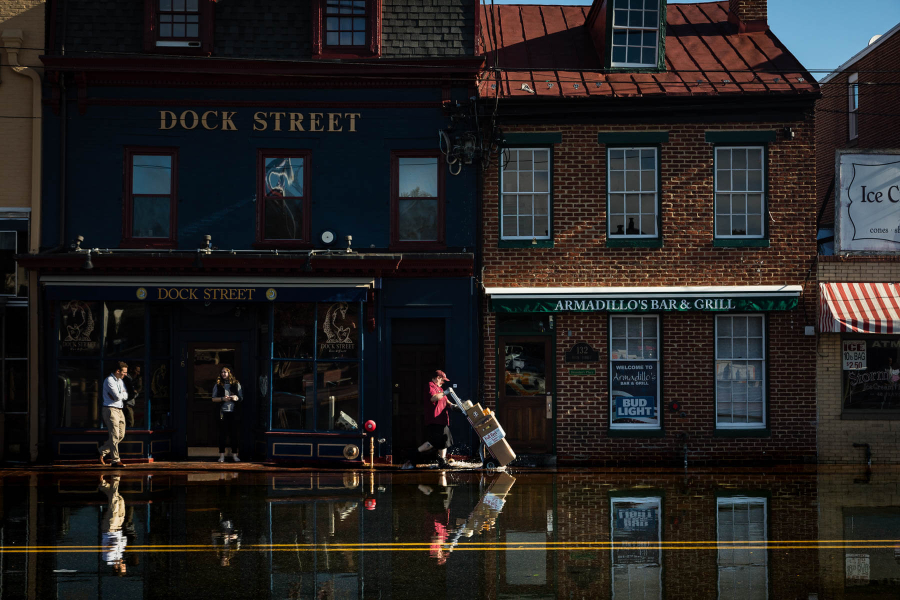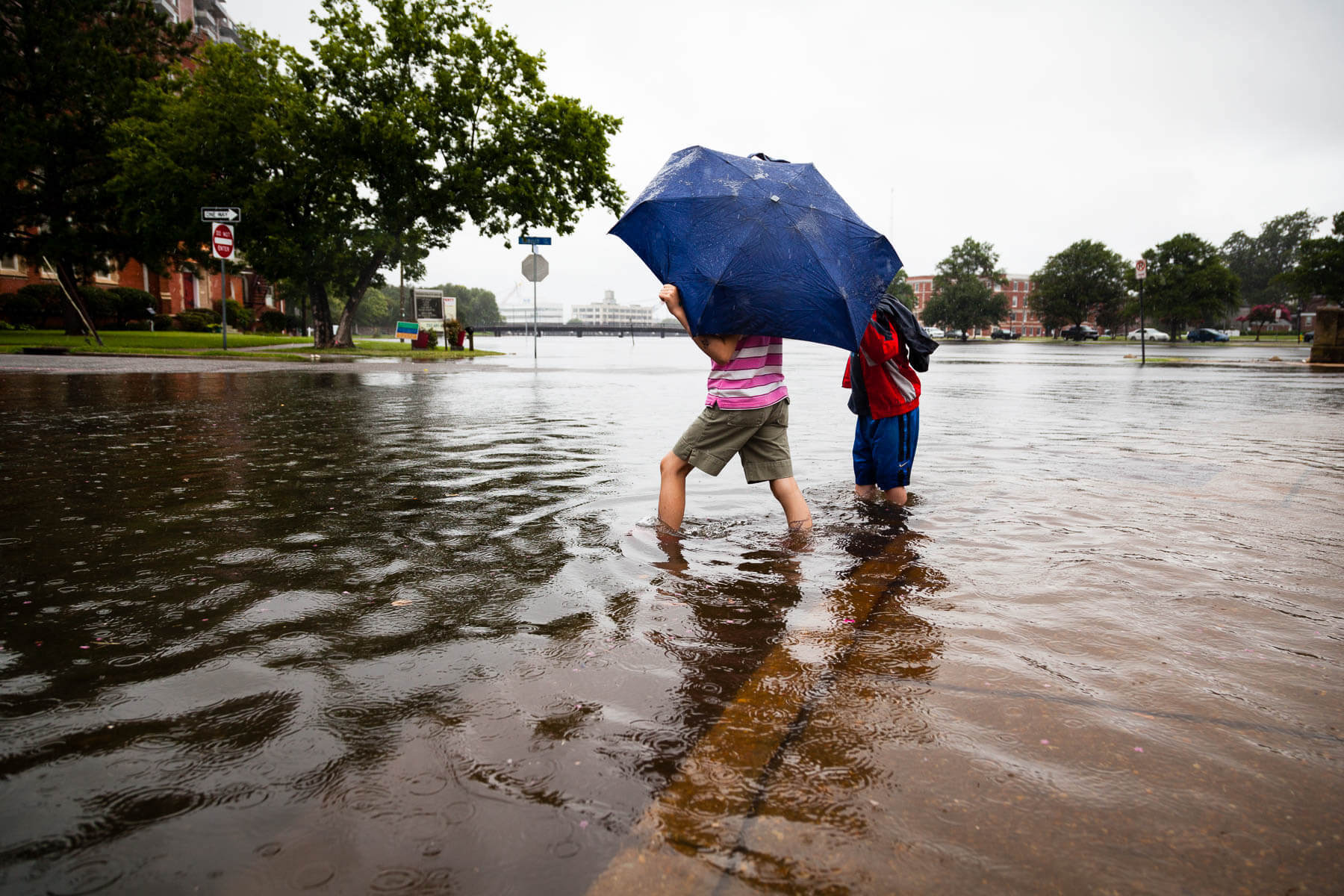Local government and climate experts convene to problem solve on community flooding

As sea levels rise and the severity of storms increase in the Mid-Atlantic, flooding will continue to be a major threat to communities in the Chesapeake Bay watershed. Whether it’s “sunny day flooding” that occurs during high-tide or heavy rainfall that causes our rivers and streams to overflow, this natural hazard damages property, threatens lives and carries pollution off the land and into the water.
Local government officials in the watershed are tasked with protecting their constituents from the impact of flooding. To do so, they rely on partnerships with environmental groups and representatives from a variety of communities—from farmers to property owners living near flood zones. Working with these groups, local government officials can define strategies for mitigating the effects of flooding both in the short and long term.
This year, the Chesapeake Bay Program’s Local Government Advisory Committee (LGAC) centered its annual Local Government Forum entirely on the topic of building community resilience against climate-related flooding. With funding from the National Fish and Wildlife Foundation (NFWF), LGAC and the Bay Program’s Climate Resiliency Workgroup, who co-hosted the event, brought together subject matter experts and local elected officials to examine current disaster relief and green infrastructure policies, address the needs of local government and develop recommendations for how communities in the Chesapeake Bay watershed and beyond can prepare for hazardous flooding in the future. Forum participants were presented with a problem statement that addressed a slew of challenges that local government officials face, and explored and expanded on six pressing topics:
- Funding and financing of resilient projects to address flood needs.
- Building stronger collaboration among jurisdictions and resource technicians.
- Current local ordinances that include language around resilient standards.
- Local government capacity to plan for and handle flood impacts.
- Innovative approaches towards climate resiliency and planning.
- Climate and environmental justice.

Taking a deeper dive into each of these categories, environmental leaders from around the Chesapeake Bay region shared their local restorative solutions to climate-related flooding. Presenter Bryan Lennon of RK&K Engineering, discussed their current wetlands construction project in Wilmington, Delaware, where the focus is to alleviate flooding in Wilmington’s Southbridge neighborhood. The project consists of restoring a brownfields site near the Christina River into a healthy wetland ecosystem, as well as developing a new stormwater system. With these developments in place, rainwater will funnel through the stormwater pipes into the wetland, where it will sit before gradually emptying into the river.
Andria McClellan, councilperson for the city of Norfolk, Virginia and LGAC member, spoke to forum participants about the establishment of local ordinances in Norfolk, highlighting the city’s “resilient quotient” ordinance. This ordinance creates a new zoning code that requires developments within or near a flood plain to comply with Norfolk’s flood resilience standards in order to lessen hazardous impacts on city infrastructure.
Additional presenters at the forum included Cliff Staples, New York State Department of Environmental Conservation, Jim Bass, Eastern Shore Land Conservancy and Matt Johnston, environmental policy director for Anne Arundel County, Maryland. For more information about the projects presented, visit LGAC’s meeting page.
A full report of the 2020 Local Government Forum will be available on LGAC’s website, by December 2020. For more information about Local Government Forums past and present, please contact lgac@allianceforthebay.org.

Comments
There are no comments.
Thank you!
Your comment has been received. Before it can be published, the comment will be reviewed by our team to ensure it adheres with our rules of engagement.
Back to recent stories